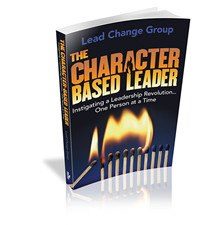Have you ever had someone that works for you ask you for a meeting? …Try to share a concern with you? …Or passionately try to share an idea?

How do you react when that happens?
Have you ever considered that they are bringing you a gift?
- The person that is coming has chosen to take a risk and invest in you and in the organization.
- No matter what their title is – they have knowledge and experiences that you don’t have.
- No matter what their role is – they see things in your organization that you don’t see.
~ Thank them for their courage.
Courage is what it takes to stand up and speak; courage is also what it takes to sit down and listen. ~Winston Churchill
They may not know how to present to you in the style that you are most comfortable.
- They may not know your DiSC profile, your learning style, or use the same business terms that you use.
- They may be so nervous that the words get twisted up when they speak to you.
- Know that underneath their passion, there is also knowledge.
~ Dig deeper. Listen closer. Seek to understand.
Please note: When I encourage people to lead up – I encourage them to learn your DiSC, your learning style and your business language. (Are you leading by example and doing the same for them?)
They may not be skilled at presenting what is so clear in their minds.
- They may only state the problem – even though they can visualize possible solutions.
~ Ask questions that help them think and articulate instead of a hitting them with a fire hose.
To receive their gift – You need to be humble and curious. (Not defensive.)
- If you’ve never served in their position – it means admitting what you don’t know.
~ Ask clarifying questions, have them to draw on a whiteboard, or give you a tour…
Know this:
- If you choose not to meet with them.
- If you blow off their courage.
- If you don’t listen to the message underneath the delivery.
- And if you let your pride get in the way.
You not only throw away the gift, you risk damaging your leadership and the growth of your organization.
- Minimum damage – If they feel like you don’t value their time and effort they may never try again.
- Moderate damage – They no longer believe you are worth investing in.
- Escalating damage – They commiserate with others that have experienced the same thing from you. And negativity spreads.
- Crushing damage – Your organization experiences a crisis, and they have the answers that could have grown your organization, but now it is too late.
 What gifts have you been offered lately? Have you opened them? …Or sent them back unopened?
What gifts have you been offered lately? Have you opened them? …Or sent them back unopened?
Image credits: iStock
NEW BOOK! 16 Authors, 16 Different Locations, 2+ Years of Planning…
Written for real people that work, that have loved ones, that want to make a difference and have meaningful lives…
Get your Amazon Kindle Version Here! ~ Have a book sent to you from Amazon here!





In general I can’t say that ever happened when I was a director. Most of the time I had to ask people if they had any suggestions they wanted to offer. It’s happened a couple of times as a consultant when I’ve been in an interim position and I’ve always welcomed the input since I knew they’d be there long after I left.
Thank you so much for sharing Mitch!
It makes me curious as to why… I know some people have come from environments where they were “trained” that it was dangerous to think or at least to share their thoughts. I know some people would prefer for others to solve things for them. But I deeply believe that most people know things that would add value to others and that they are happiest when their knowledge is leveraged.